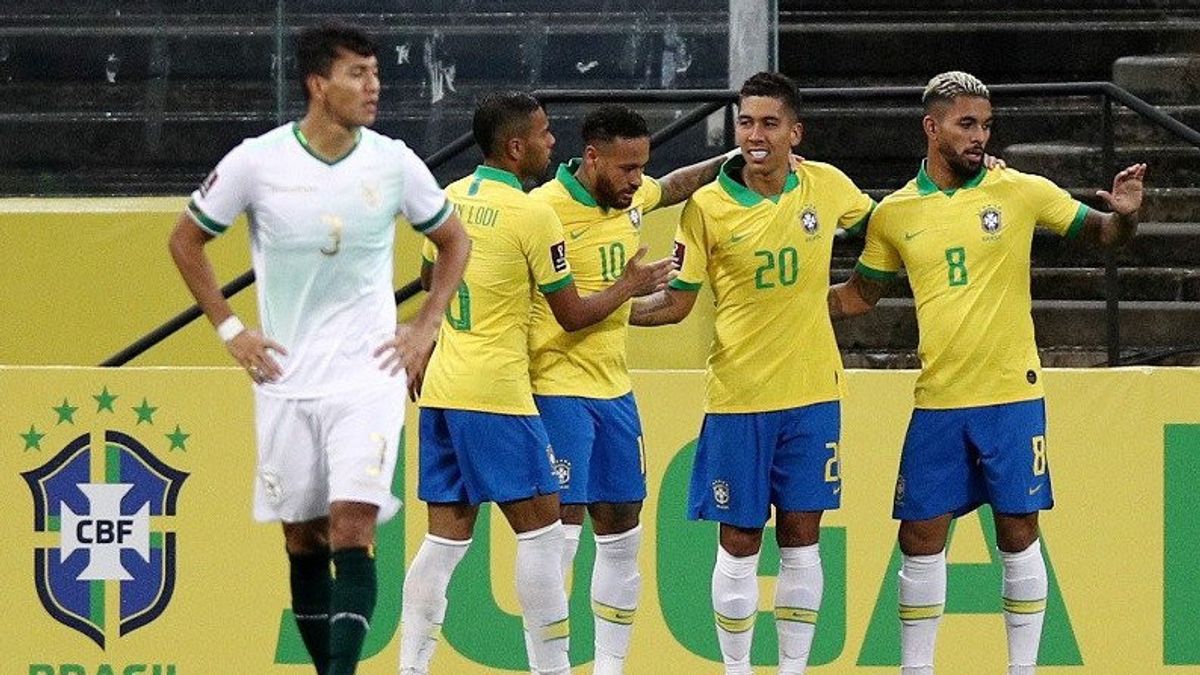JAKARTA - For the first time, a Brazilian athlete representing his country at the Olympics will undergo anti-racism training, in an effort to address the entrenched and sometimes tarnished problems of the sports world.
The Brazilian Olympic Committee has a 30-hour online course program this week, which 650 athletes, coaches, doctors, nutritionists, officials and other delegates will have to attend the Tokyo Olympics in July through August.
"The purpose of this course is to provide information, knowledge and also open a wide-ranging discussion about racism in sport," the committee's secretary general and judo gold medalist at the 1992 Olympics, Rogerio Sampaio, was quoted as saying by AFP on Friday.
"Racism is structural... but we believe the sports world can no longer tolerate it," he added.
About 55 percent of Brazil's population is black or mixed, a country that abolished slavery in 1888.
Racial inequality can be a traumatic and burden-laden subject in a country of 212 million people, where whites earn nearly 75 percent more than the average person of color.
The course will provide an overview of the history of racial inequality in Brazil, discuss what racism is like in sport and teach members of the Olympic delegation what they can do if they witness or become victims.
Sampaio said Brazil was the first Olympic committee in the world to launch such an initiative.
He called it a "first step" to addressing the problem.
"We know it's not enough, but it's important," Sampaio said.
Racist incidents in sports continue to occur, despite the impact of movements like "Black Lives Matter" in the United States and athlete activists, such as Naomi Osaka and LeBron James.
Allegations of racism occurred in the Cadis vs Valencia match, Sunday, April 4. Valencia's Spanish club player Mouctar Diakhaby has admitted to receiving racist taunts from his opponent, Juan Cala.
Meanwhile, French club Nantes FC on Tuesday, April 6, said midfielder Imran Louza had received threats of murder and racist attacks on social media after the club's last game.
English football clubs Swansea City and Glasgow Rangers say they will boycott social media for seven days to protest racial abuse against their players online.
Brazilian sport is also inseparable from racist incidents.
"We see many cases because of the internet.... These things always happen, but previously the news didn't reach many people," said former Brazilian gymnast and former Olympic athlete Daiane dos Santos.
Dos Santos (38) is a victim of racism in the world of gymnastics, a sport with few black athletes and a history of famous racist incidents in Brazil.
The 2003 gold medalist at the World Gymnastics Championships (floor gymnastics) - Brazil's first gymnastics world champion -- recalled his teammates refusing to train next to him and coaches questioning why a black girl wanted to be a gymnast.
"It made me develop a character, which helped me survive that kind of oppression," Dos Santos said.
According to him, this course is a good idea, and it needs to be done.
"Let's punish those who deserve to be punished," and omit any excuse, Dos Santos said.
Brazilian law stipulates fines or prison sentences of up to three years for those who commit racist insults.
The Brazilian Olympic Committee also has the authority to fine or sanction athletes who violate its code of conduct, which includes rules prohibiting racist behavior.
The English, Chinese, Japanese, Arabic, and French versions are automatically generated by the AI. So there may still be inaccuracies in translating, please always see Indonesian as our main language. (system supported by DigitalSiber.id)








